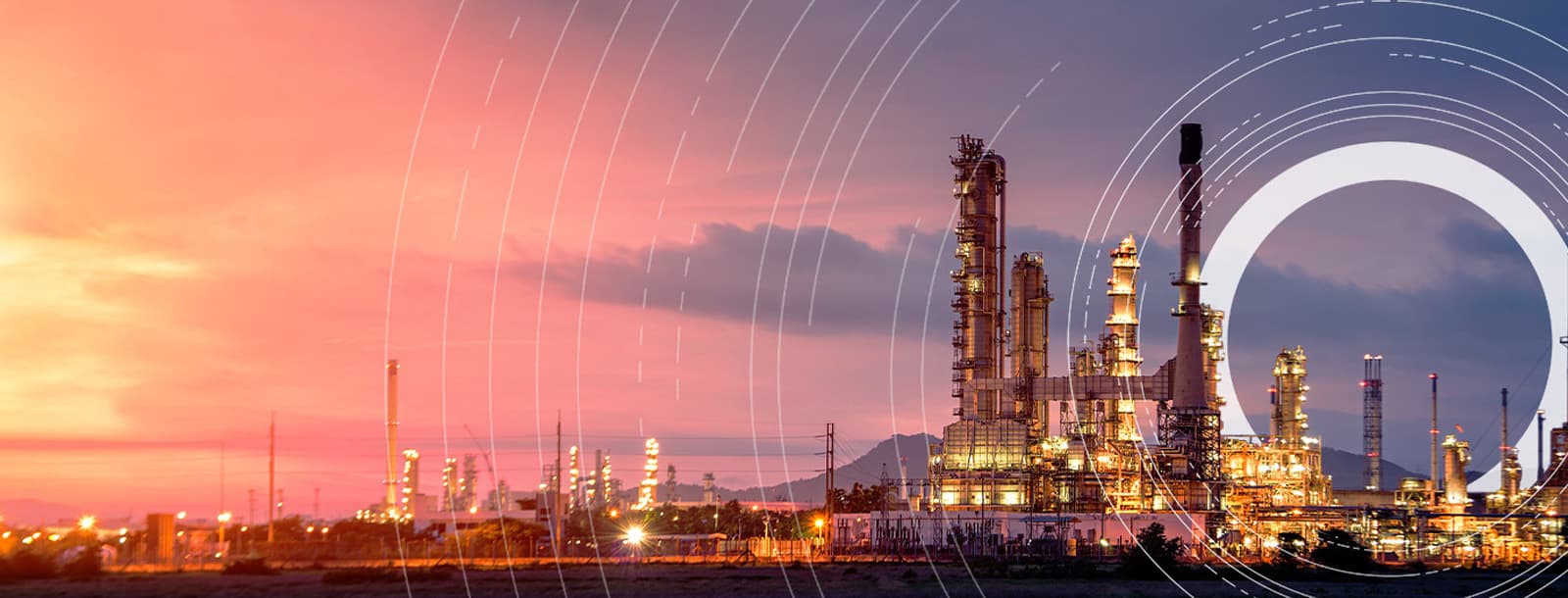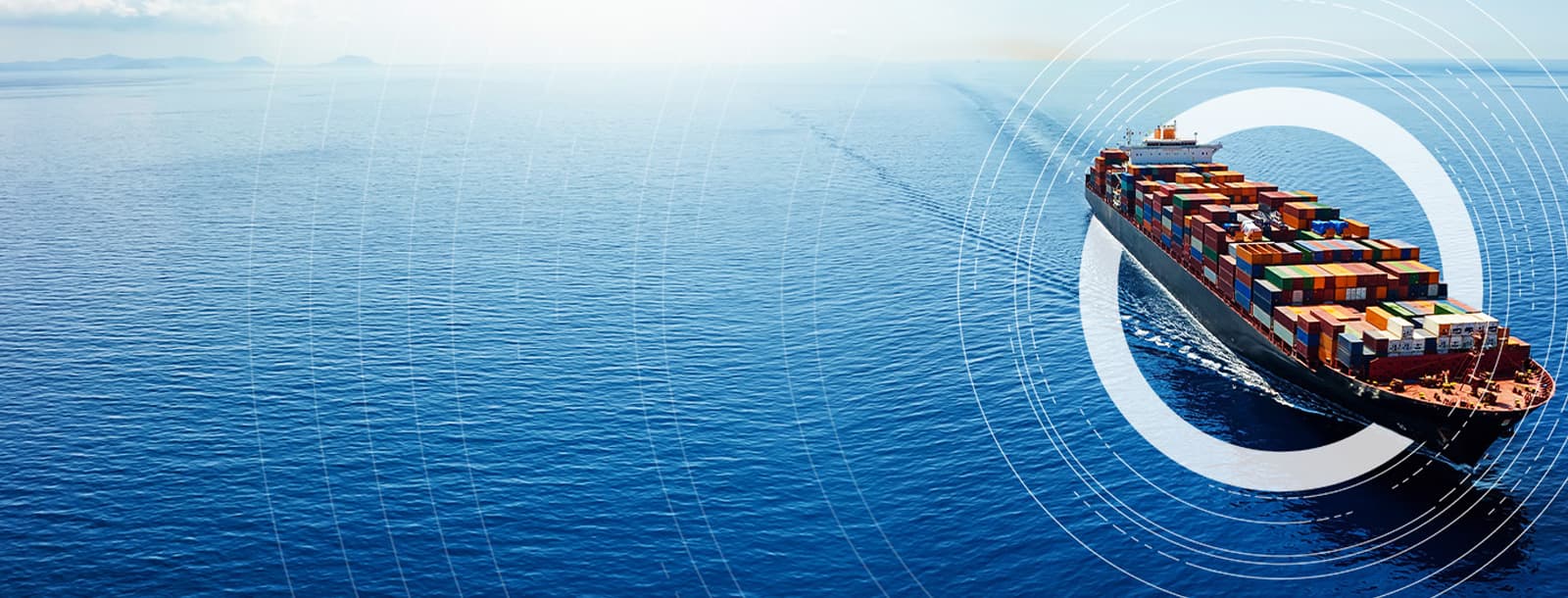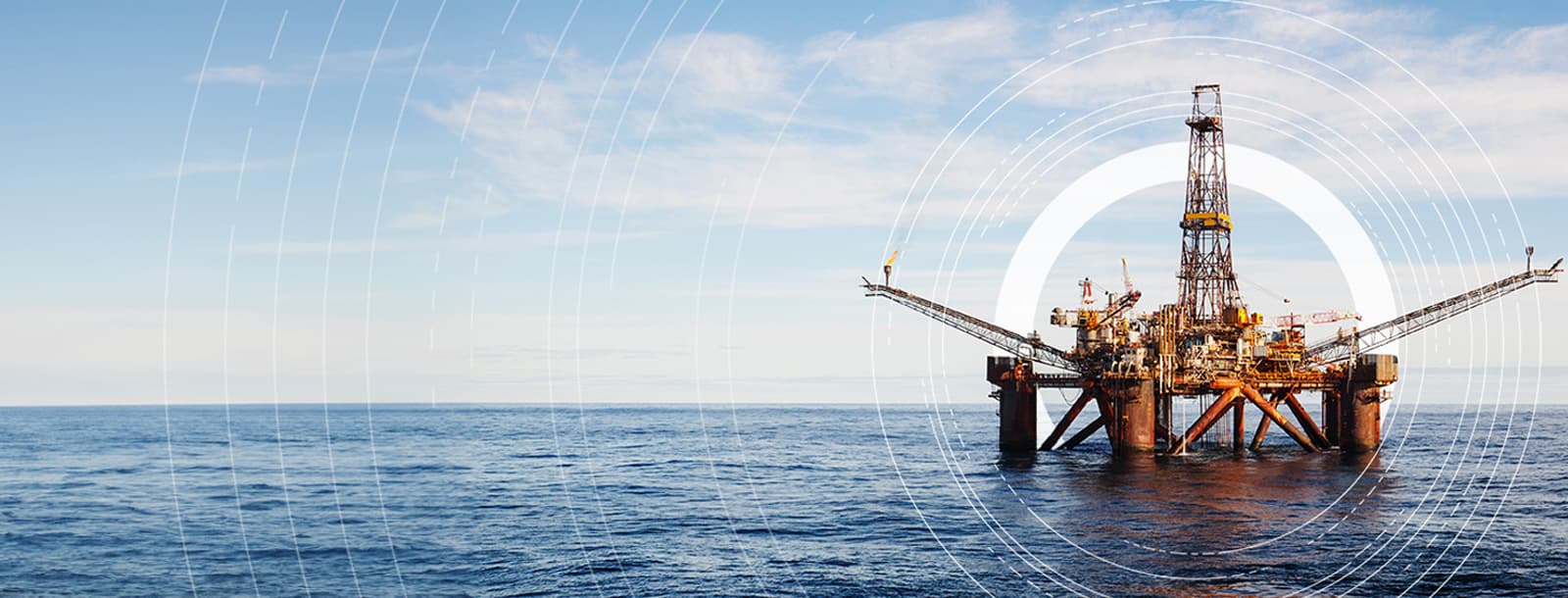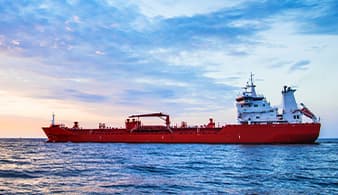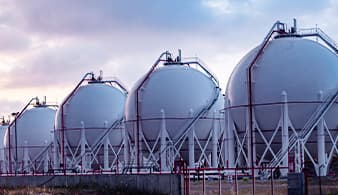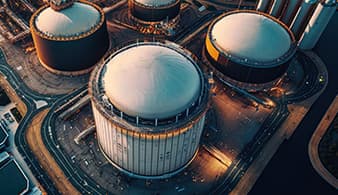Рынки
Argus всесторонне освещает товарно-сырьевые рынки, охватывая всю цепочку от добычи сырья до его переработки и конечного потребления.
Мы предоставляем актуальную аналитику, точные котировки, и организуем отраслевые конференции.
Актуальная рыночная информация
Наши международные эксперты по энергетическим и товарно-сырьевым рынкам информируют клиентов о событиях на энергетических и товарно-сырьевых рынках. Ознакомьтесь с последними текстовыми, аудио- и видеоматериалами Argus
Спрос на зерновозы в Казахстане вырос
Спрос на зерновозы в Казахстане вырос
Riga, 16 February (Argus) — Интерес к привлечению зерновозов в Казахстане в начале января усилился относительно декабря. Поставщики сталкиваются с локальным дефицитом парка из-за несвоевременного возврата вагонов из стран Центральной Азии, сообщили участники рынка. Несмотря на укрепление спроса, стоимость предоставления зерновозов в пользование в Казахстане в январе не изменилась по сравнению с декабрем, составив 30 000—35 000 тенге/сут. с НДС. Ослабление спроса возможно к концу января, что приведет к снижению ставок оперирования в феврале, — полагает участник рынка. Заторы в районе станции Сары-Агач (казахстанско-узбекская граница), возникающие с конца 2025 г., привели к увеличению общего оборота вагонов на остальных маршрутах из Казахстана, по данным экспедиторов. В ноябре и декабре на подходе к станции Сары-Агач наблюдалось скопление 8 800—11 500 вагонов. Объем перевозок зерна по сети КТЖ в 2025 г. превысил 14,3 млн т, что на 31% больше, чем годом ранее. Экспортные перевозки в прошлом году выросли на 33% — до 11 млн т, что является рекордным показателем за последние 10 лет. Наиболее значительно отгрузки казахстанского зерна увеличились в направлении портов стран Балтии, а также в Иран, Афганистан, Узбекистан и Азербайджан, по данным КТЖ. ________________ Больше ценовой информации и аналитических обзоров рынка транспортировки грузов в странах Каспийского региона и Центральной Азии — в отчете Argus Транспорт Каспия . Вы можете присылать комментарии по адресу или запросить дополнительную информацию feedback@argusmedia.com Copyright © 2026. Группа Argus Media . Все права защищены.
Контейнерные перевозки через Каспий дорожают
Контейнерные перевозки через Каспий дорожают
Riga, 13 February (Argus) — Стоимость транспортировки контейнеров по Транскаспийскому международному транспортному маршруту (ТМТМ) в январе увеличилась относительно декабря. Тарифы выросли на фоне увеличения сроков доставки грузов, сообщили участники рынка. Неблагоприятные погодные условия на Каспии и в Черном море в январе серьезно ограничили транспортировку контейнеров. На Каспии в январе в общей сложности 10 дней наблюдалась штормовая погода, которая препятствовала регулярным морским перевозкам, — сообщил представитель транспортной компании. Срок прохождения контейнерными поездами маршрута Сиань — Алтынколь — Актау — Алят — Абшерон в январе увеличился до 16—21 суток с 15—20 суток — в декабре, рассказали перевозчики. Стоимость перевозки 40-футового высокого контейнера (40HQ) из Сианя в Абшерон (Баку) в январе выросла до $5 500—5 900/40HQ с $5 500—5 600/40HQ — месяцем ранее, сообщили экспедиторы. Транспортировка контейнерных грузов небольшими операторами может обходиться на 15—20% дороже указанного диапазона, полагают экспедиторы. Некоторые перевозчики в январе оценивали расходы на доставку контейнеров из Сианя до Абшерона в $6 200—6 500/40HQ в сравнении с $6 000—6 200/40HQ — в декабре. Стоимость перевозок контейнеров из китайского Иу, а также с прилегающих станций на востоке Китая в Апшерон в январе составила $6 000—6 900/40HQ относительно $5 500—6 900/40HQ в декабре, сообщили участники рынка со ссылкой на прайс-лист датской Maersk. В январе перевозчики по-прежнему были вынуждены платить повышенные страховые премии за военные риски при судоходстве в Черном море. Стоимость перевозки из Сианя в турецкий Мерсин/Амбарлы транзитом через Абшерон/Алят в январе выросла до $6 700—7 700/40HQ в сравнении с $6 500—7 500/40HQ — в декабре. В Азербайджане, Грузии и Казахстане в конце января по-прежнему простаивало несколько тысяч порожних контейнеров, по данным участников рынка. Компаниям не удается найти достаточно груза для обратной отправки контейнеров в Китай, сообщил представитель транспортной компании. Периодически из стран этого региона в Китай отправляют контейнеры с коксом, карбамидом и зерном, отметили отраслевые источники. ________________ Больше ценовой информации и аналитических обзоров рынка транспортировки грузов в странах Каспийского региона и Центральной Азии — в отчете Argus Транспорт Каспия . Вы можете присылать комментарии по адресу или запросить дополнительную информацию feedback@argusmedia.com Copyright © 2026. Группа Argus Media . Все права защищены.
Мороз на Балтике разгоняет ставки фрахта
Мороз на Балтике разгоняет ставки фрахта
Moscow, 4 February (Argus) — Навигационная обстановка в Балтийском море в начале февраля резко осложнилась из-за формирования устойчивого ледового покрова. Это привело к увеличению времени оборачиваемости флота, что повлияет на рост ставок фрахта судов для перевозок широкой номенклатуры грузов, по словам участников рынка. С 16 февраля в акватории Большого порта Санкт-Петербург и на подходах к нему вводятся ограничения для судоходства. При толщине льда 15—30 см суда без ледового усиления и буксирно-баржевые составы не смогут двигаться без сопровождения ледокола. Для судов класса Ice1, рассчитанных на эпизодическое плавание в мелкобитом разреженном льду неарктических морей толщиной до 0,4 м вводится обязательная проводка. В свою очередь, суда класса Ice2, готовые к регулярному плаванию во льду толщиной до 0,5 м вне Арктики, могут следовать как с ледокольной поддержкой, так и самостоятельно. Аналогичный режим установлен в морском порту Усть-Луга (Ленинградская обл.). Соответствующее распоряжение капитан порта Александр Волков подписал 2 февраля, Argus ознакомился с копией документа. Суда без ледового класса могут заходить в порт только при условии индивидуальной ледокольной проводки, по информации участников рынка. Такая проводка от острова Гогланд в Финском заливе, по их оценкам, занимает не менее 12 часов на вход и столько же на выход. Стоимость услуги в обе стороны оценивается примерно в 10 млн руб., что неизбежно отразится на итоговой ставке фрахта. В результате фрахт балкеров типоразмеров Handysize (дедвейт 15—35 тыс. т) и Supramax (50—60 тыс. т) из-за возросших расходов судовладельцев может подорожать в среднем на $3—4/т, по оценке судовых брокеров. Дополнительным фактором роста станет увеличение оборачиваемости судов, что сокращает доступный тоннаж. В начале февраля ставки фрахта при перевозке калийных удобрений из Санкт-Петербурга в Бразилию партиями по 50 тыс. т оценивались участниками рынка в $38—38,50/т против $36/т месяцем ранее. Годом ранее аналогичные отправки обходились фрахтователям в $26—27/т. В регионе также наблюдается дефицит ледокольных мощностей, необходимых для всего работающего флота: пассажирского, танкерного, сухогрузного и контейнерного. Ледоколы работают с учетом приоритетов: в первую очередь обслуживаются пассажирские суда и паромы, затем — танкеры, контейнеровозы и балкеры, по информации участников рынка. Для обеспечения проводки в балтийские порты задействованы семь линейных и шесть портовых ледоколов. С начала года также выросли тарифы на индивидуальную ледокольную проводку. Участники рынка не исключают, что в случае дефицита тоннажа на Балтике фрахтователи могут задействовать суда, находящиеся в Черном и Средиземном морях. Это создаст дополнительный спрос и может подтолкнуть вверх ставки не только в Балтийском, но и в Азово-Черноморском бассейне. Артем Куприянов ___________________ Больше ценовой информации и аналитических материалов о рынке транспортировки навалочных, генеральных грузов и контейнеров — в ежемесячном отчете Argus Логистика сухих грузов . Подписаться на аналитический дайджест Вы можете присылать комментарии по адресу или запросить дополнительную информацию feedback@argusmedia.com Copyright © 2026. Группа Argus Media . Все права защищены.
Логистика сухих грузов - ЦО: готовим аналог Яндекс.Такси на рынке оперирования
Логистика сухих грузов - ЦО: готовим аналог Яндекс.Такси на рынке оперирования
Moscow, 10 December (Argus) — В начале ноября на рынке железнодорожных перевозок появился новый участник — Цифровой оператор (ЦО). О целях и задачах этой компании, а также о перспективах операторского рынка рассказал Argus генеральный директор ЦО Алексей Винников. — В ноябре вы возглавили ЦО. Каковы цели и задачи этого предприятия? — Если коротко, главная задача ЦО — повышение эффективности использования грузовых вагонов на сети РЖД с учетом оптимизации перевозочного процесса для снижения затрат операторов и грузоотправителей. Предпосылками к такому решению явилось то, что последние пять лет производительность подвижного состава неуклонно падала, в итоге увеличивался размер невостребованного парка, который и дальше продолжал расти с учетом закупок операторами новых вагонов. В результате общий парк достиг некой критической массы — около 1,4 млн единиц, когда текущие инфраструктурные мощности РЖД уже не в состоянии обеспечить ритмичное перемещение подвижного состава. По законам экономики увеличение числа вагонов в оперировании должно снижать себестоимость их использования, а сейчас ситуация обратная — чем больше вагонов, тем выше себестоимость, и, как следствие, растет транспортная составляющая в цене перевозимых товаров. Таким образом, вопрос оптимизации перевозочного процесса на железнодорожной сети стал одним из ключевых в экономике страны в целом. Еще на этапе создания операторского бизнеса многие задавались вопросом: как, с одной стороны, сохранить высококонкурентный рынок оперирования, а с другой — использовать лучшие практики в технологии управления движением. По большому счету, это математическая задача: как перевозить большее количество груза при минимизации порожнего пробега и времени оборота вагона. Ее решение сегодня подсказывает цифра, точнее возможность использовать big data, строить математические модели и создавать цифровые решения. Мы проанализировали работу сети и обнаружили целый ряд точек оптимизации перевозочной технологии. Это встречные порожние пробеги, возможности для маршрутизации перевозок, уменьшение сортировок и так далее. Для реализации потенциала такой оптимизации создана цифровая платформа управления подвижным составом с применением подхода по обезличиванию парка. Убежден, что наше решение позволит оперативно улучшить технологию перевозочного процесса, а с ростом числа операторов-участников эффект будет только расти. Например, если мы видим, что на какой-то точке у одного оператора есть вагон, но нет погрузки, мы привлекаем его на рейс по уже согласованной заявке на перевозку ГУ-12 другого оператора. Последние пару лет рынок активно использует эту технологию при непосредственной поддержке РЖД, обмениваясь подвижным составом по возможности и при необходимости. Однако когда такой обмен проходит вручную, у этого механизма есть пределы, прежде всего человеческие. Цифровая платформа, решающая математическую задачу распределения вагонов, и единый диспетчерский центр, который, в свою очередь, охватывает все центры погрузки/выгрузки, обеспечивают единую логистику и работают как агрегатор такси, позволяют значительно расширить границы возможного и сократить порожние пробеги и оборот вагона, создав общие правила заадресации порожних вагонов. ЦО — это тройственный союз люди — логистические технологии — цифра, который объединил профессиональный диспетчерский состав и лучшие цифровые практики для совершенствования технологий перевозок грузов на железной дороге. Сейчас ЦО управляет парками Первой грузовой компании (ПГК), Атланта и Грузовой компании, и это уже не пилотный проект — это реальность. Мы видим на рынке интерес к работе ЦО и в настоящее время ведем переговоры о присоединении других участников. Рост числа операторов в пуле позволит масштабировать эффекты, наращивать компетенции и опыт в сфере управления движением. При этом мы придерживаемся принципа сохранения конкуренции на рынке оперирования. Именно поэтому ЦО обеспечивает эффективность использования парка, а операторы сохраняют самостоятельность в коммерческой работе и при взаимодействии с клиентом. Уверен, эта технология докажет свое право на существование. — ЦО открыт для сотрудничества? — Абсолютно, никаких ограничений, призываем поучаствовать всех коллег вне зависимости от специализации парка, будь то полувагоны, крытые, хопперы или любой другой парк. Уверен, что с учетом вызовов, которые стоят перед всей отраслью, большинство понимает — настало время меняться. В условиях ограниченных ресурсов и конкуренции с другими видами транспорта необходимо внедрять новые подходы в управлении парком вагонов. — А за участие предполагается уплата какого-то процента? — Оплата зависит от переменных затрат в виде порожнего пробега, которые оператор накатал в рамках ЦО, в том числе трудовых ресурсов, диспетчеризации. Рассмотрим ситуацию: первый оператор доставил уголь в полувагоне с Западно-Сибирской железной дороги на Октябрьскую. Обратный порожний рейс — 68 000 руб. в соответствии с Прейскурантом 10-01. В это же время полувагоны второго оператора работают на Дальнем Востоке, но у него есть заявка от клиента на перевозку щебня с Октябрьской дороги на Московскую. Для этой операции привлекается парк первого оператора за определенную плату. Второй оператор, рассчитавшись с первым, исполнил заявку и оплатил порожний пробег. В результате коммерческая составляющая — уникальные договоренности операторов с клиентами — полностью сохраняется. Компания Цифровой оператор создана для объединенного ответа вызовам, которые стоят сейчас перед операторским сообществом. Правительство России последние годы посылает бизнесу достаточно недвусмысленные сигналы о необходимости повышения производительности труда, эффективности использования активов. Мы такие сигналы не игнорируем. — Модель ЦО немного похожа на инвентарный парк... — Не совсем. Да, с точки зрения эффективности использования и привлечения на рейс ближайших вагонов некоторые совпадения есть, но все-таки мы смотрим на этот процесс с точки зрения бизнеса. И видим своей бизнес-задачей за счет эффекта масштаба свести к минимуму непроизводительные простои и перемещения вагонов, достигая максимально возможной технологической эффективности оперирования. — А у антимонопольных органов вопросов возникнуть не должно? — Наша бизнес-модель предполагает, что каждый из операторов самостоятельно договаривается о ценовых условиях со своими клиентами. Так называемый обмен парками идет только в части диспетчеризации. Так что конкуренция сохраняется, и я считаю это важным: любая монопольная структура неминуемо теряет эффективность. По своей сути ЦО — это аутсорсинг услуги диспетчеризации. Бизнес достаточно часто отдает что-то на аутсорсинг: бухгалтерию, юридические вопросы. И вот мы добавляем в этот список логистический аутсорсинг. Вместе с тем мы находимся в условиях быстрого меняющегося мира и, как показывает практика, выигрывает тот, кто более мобилен и готов к сегодняшним вызовам. В этой связи, я полагаю, ЦО будет являться для государства прозрачным и понятным механизмом, и соответственно при интеграции в экономику страны потребуется соответствие правовому полю для исключения правовых коллизий. Мы в настоящий момент прорабатываем вопросы дальнейшего развития ЦО и увеличения сервисных предложений и в этом случае готовим соответствующие точечные донастройки действующего законодательства для того, чтобы оставаться в правовом поле. — Но, несмотря на это, в каком-то виде консолидация все равно происходит? — Вопрос не совсем по теме ЦО, но если вас интересует мое частное мнение, то отвечу. Это естественный процесс, характерный для всех рынков: используя лучшие практики, ты быстро растешь, твоя услуга становится ниже по себестоимости и выше по качеству, чем у конкурентов. А затем неэффективные игроки или поглощаются, или уходят с рынка сами, и их доли распределяются между более расторопными игроками. Конкуренция между оставшимися участниками в итоге должна обеспечить лучшие предложения для клиента — это базовые законы рынка. Консолидация позволяет снижать удельные и постоянные затраты, но для того, чтобы сегодня при консолидации сохранять достаточный уровень конкуренции, надо вводить цифровые сервисы по продаже услуги. Посмотрите на маркетплейсы. Там ведь тоже на один и тот же товар могут быть разные цены, и в этом нет ничего плохого. Тем более, что в большинстве случаев понятно, чем эта разница обусловлена. Будем надеяться, что и в отрасли грузовых железнодорожных перевозок мы придем к 100%-ной прозрачности ценообразования. Убежден, что для повышения прозрачности на железнодорожном рынке нужно внедрять цифровые продажи, которые позволят ускорить доступ к клиентам, сравнивать разные опции. Это ускорит обмен информацией, повысит доступность услуги, и не нужно будет искать, кто, как, когда повезет: просто обращаешься в ЦО, там предоставляют услугу бесшовной логистики. Например, как в Яндекс.Такси: цифровая диспетчеризация, цифровые продажи, цифровые взаиморасчеты. Я думаю, что в какой-то момент рынок железнодорожных перевозок тоже придет к подобной модели. Во всяком случае мы, создавая цифровую диспетчеризацию, делаем шаг в этом направлении. — Как, по вашему мнению, будет развиваться ситуация на рынке оперирования в наступающем году? — Сегодняшнего уровня доходности недостаточно, чтобы содержать подвижной состав. Вместе с тем нарастает процент нерабочего парка на сети РЖД. Исходя из того, что мы видим, при текущем уровне погрузки дефицит полувагонов наступит примерно весной — в начале лета. По крытым ситуация похожая, но нехватка парка в этом сегменте ожидается плюс-минус в августе, в разгар строительного сезона. Но это — при текущем уровне погрузки и размере парка. Если отправители будут предъявлять больше грузов, соответственно и дефицит начнется раньше. Сейчас в правительстве обсуждаются различные схемы приобретения новых вагонов по системе trade-in, в том числе — получение сертификата на 700 000 руб. на приобретение одного нового вагона при списании трех боеспособных единиц, у которых остаточный срок эксплуатации составляет пять лет и больше. На мой взгляд, наиболее жизнеспособной была бы схема, при которой оператор отдает три старых вагона заводу и получает взамен один новый. Оператор при этом все равно оказывается в проигрыше — новый вагон, каким бы суперэффективным он ни был, зарабатывать, как три старых вагона, не сможет. Важно понимать, что дефицит для рынка перевозок — крайне отрицательное явление. Помимо локального скачка цен, это еще и избыточные инвестиции в парк и, как следствие, рассинхронизация рынка на длительную перспективу. Оптимально наличие определенного резерва парка на сети для покрытия сезонных и разовых колебаний спроса. Разумный профицит — абсолютно нормально. Мы видим, что обсуждаемая в Правительстве программа поддержки операторов и вагоностроителей носит системный и долгосрочный характер. В случае ее реализации, исходя из ожиданий по ключевой ставке Банка России, которая прогнозируется в 2026 г. в среднем на уровне 15%, доходность полувагона может вернуться на уровень около 3 500 руб./сут., который позволит инвестировать в новый подвижной состав. — Если сравнивать с текущими ставками — рост может оказаться взрывным... — Но и рынок сейчас находится фактически на дне. Отмечу, что последние 15 лет стоимость услуг железнодорожных операторов растет медленнее инфляции. Это означает, что наш рынок остается в среднем более склонным к росту производительности труда и более чутко реагирующим на перемены в экономике. Несмотря на то, что оборачиваемость парка все это время замедлялась, операторы своего вклада в инфляцию не давали. Однако текущая низкая ценовая конъюнктура долго продолжаться не может — неизбежны расходы на обновление подвижного состава, а кроме того, все готовятся к значительному росту цен на деповские ремонты с 1 января, что повысит издержки на содержание парка. И все участники рынка заинтересованы в том, чтобы пройти этот этап низких ставок в параллели со списанием и обновлением парка, сохранив свои компании и клиентов. На мой взгляд, ЦО может помочь в этом. Цифровой оператор (ЦО) Транспортно-логистическая компания, специализирующаяся на управлении парком подвижного состава при перевозке грузов по железной дороге. Создана в 2025 г. Компания через единый сервис оптимизирует использование вагонного парка за счет обезличивания подвижного состава, что позволяет повысить маршрутизацию перевозок, минимизировать встречный порожний пробег и увеличить скорость движения вагона. К ЦО может присоединиться любой оператор подвижного состава на условиях публичной оферты. При этом каждый оператор сохраняет отношения с клиентами на основе собственной коммерческой политики. Алексей Винников В 2007 г. с отличием окончил МИИТ. С 2011 г. работал в департаменте корпоративных финансов РЖД. В 2011—2019 гг. был директором по экономике, начальником департамента экономики Федеральной грузовой компании. С 2020 г. занимал руководящие должности в крупных компаниях — операторах железнодорожных перевозок. С апреля 2025 г. — генеральный директор Первой грузовой компании. С ноября 2025 г. — генеральный директор компании Цифровой оператор. Константин Мозговой Вы можете присылать комментарии по адресу или запросить дополнительную информацию feedback@argusmedia.com Copyright © 2025. Группа Argus Media . Все права защищены.

Способы получения информации Argus
Широкий выбор способов предоставления материалов Argus гарантирует вам мгновенный доступ к необходимой информации в любое время и в любом месте.
Преимущества Argus
Наши сотрудники
Наша команда преданных своему делу отраслевых экспертов работает в тесном сотрудничестве с местными участниками рынка, что позволяет им предоставлять вам не только точные ценовые данные, но и обширную аналитическую информацию о рынке. Одних только данных, какими бы точными они ни были, недостаточно.
ПодробнееМетодики
Уникальная рыночная информация, которую получают наши клиенты, основана на проверенных методах анализа рынка. Мы используем прозрачные методики определения цен, в основе которых лежат строгие процедуры, учитывающие особенности рынка.
ПодробнееНаш опыт
Уже более 50 лет клиенты получают точную рыночную информацию от экспертов Argus, совместно работающих на мировых товарно-сырьевых рынках.
ПодробнееНаши мероприятия
Опираясь на наш опыт в отрасли и широкую сеть профильных экспертов, мы организуем отраслевые мероприятия на ключевых энергетических и товарно-сырьевых рынках по всему миру.
Argus Green Marine Fuels Europe Conference
Argus Green Marine Fuels Europe Conference
Argus Europe Carbon Conference
Argus Europe Carbon Conference
Argus Black Sea and Caspian Key Terminals and Logistics Conference
Argus Black Sea and Caspian Key Terminals and Logistics Conference
Как мы можем вам помочь?
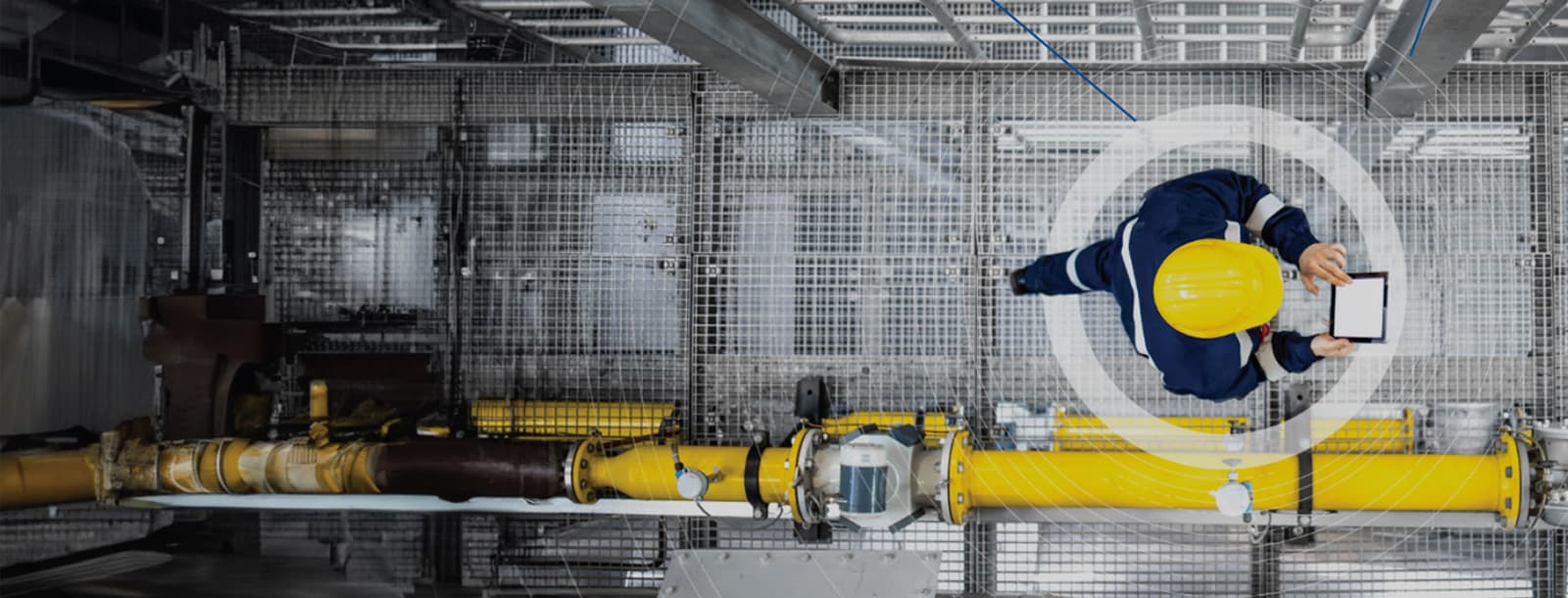
Запросить примеры отчетов
Напишите нам на markets@argusmedia.com или заполните форму, и мы
подберем для вас решение, которое будет соответствовать вашим потребностям.

